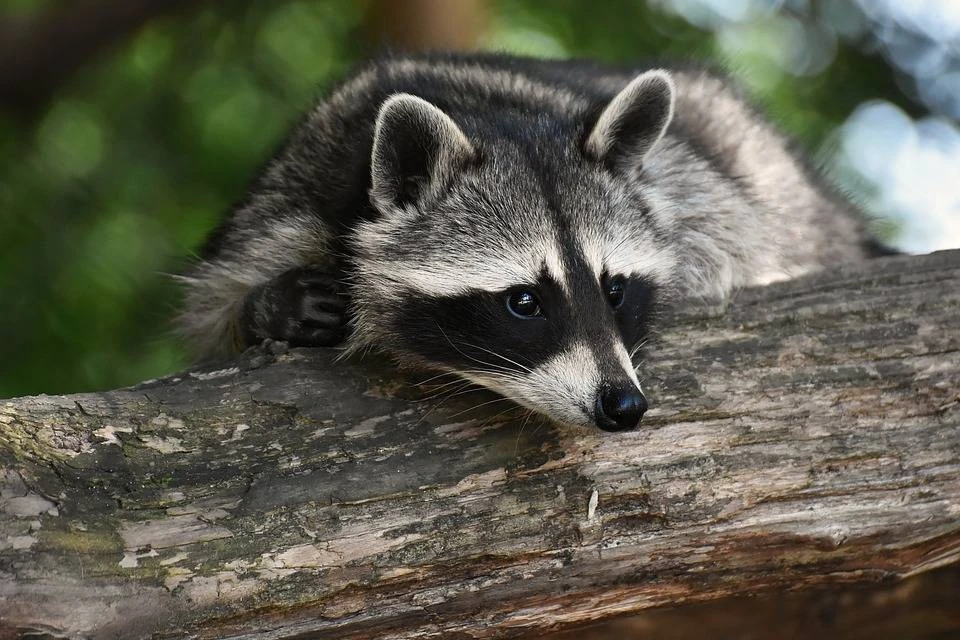Why Lexington Kentucky Residents Should Never Feed Raccoons
Raccoons are a common sight in Lexington, Kentucky, known for their distinctive black mask and ringed tail. While these creatures may appear cute and harmless, it is important for Lexington residents to understand the risks associated with feeding raccoons. As a wildlife control professional, we strongly advise against feeding raccoons for several reasons.
1. Disease Transmission
Raccoons can carry a variety of diseases, some of which can be transmitted to humans and pets. One such disease is rabies, a viral infection that affects the nervous system and can be deadly if left untreated. Lexington residents who feed raccoons are at a higher risk of coming into contact with these animals and potentially being exposed to rabies.
In addition to rabies, raccoons can also carry other diseases such as leptospirosis, giardia, and roundworm. These diseases can be transmitted through direct contact with raccoon feces or urine. By feeding raccoons, residents increase the likelihood of these disease-causing organisms being present in their yards or living spaces.
2. Property Damage
Raccoons are known for their dexterity and ability to manipulate objects with their hands. When residents feed raccoons, they inadvertently attract these animals to their properties, increasing the risk of property damage. Raccoons may tear open garbage bags, rummage through trash cans, and even enter homes in search of food.
Lexington residents who feed raccoons may find themselves dealing with torn screens, damaged roofs, and even chewed electrical wires. These damages can be costly to repair and may pose additional risks, such as the potential for electrical fires.
3. Encouraging Dependence
Feeding raccoons can lead to an unhealthy dependence on humans for food. Raccoons are highly adaptable creatures and can easily find natural food sources in their environment. By providing them with an alternative food source, residents disrupt the natural balance and behavior of raccoons.
When raccoons become dependent on human-provided food, they may lose their natural foraging skills and become more reliant on humans. This can lead to increased encounters between raccoons and humans, which can be dangerous for both parties involved. Raccoons that lose their fear of humans may become more aggressive and pose a threat to pets or small children.
4. Ecological Impact
Feeding raccoons can have unintended consequences on the local ecology. By altering the natural feeding patterns of raccoons, residents may indirectly affect other species in the area. For example, raccoons that rely on human-provided food may consume less of their natural prey, potentially leading to imbalances in local ecosystems.
Furthermore, the increased presence of raccoons attracted by feeding can disrupt the natural behaviors of other wildlife species. This can lead to competition for resources and potential conflicts between different animal populations.
5. Legal Considerations
Feeding raccoons in Lexington, Kentucky, is not only a bad idea from a wildlife management perspective but also from a legal standpoint. The Kentucky Department of Fish and Wildlife Resources prohibits the feeding of raccoons and other wildlife species without proper permits. Violating this regulation can result in fines and penalties.
By refraining from feeding raccoons, Lexington residents not only protect themselves and their properties but also contribute to the overall preservation of the local wildlife and ecosystem.
If you are experiencing issues with raccoons or other wildlife in Lexington, Kentucky, it is important to seek professional assistance. Our wildlife control services can help safely remove raccoons and implement effective prevention strategies to ensure a raccoon-free environment. Contact us today for expert assistance and protect yourself from the risks associated with raccoon encounters.

